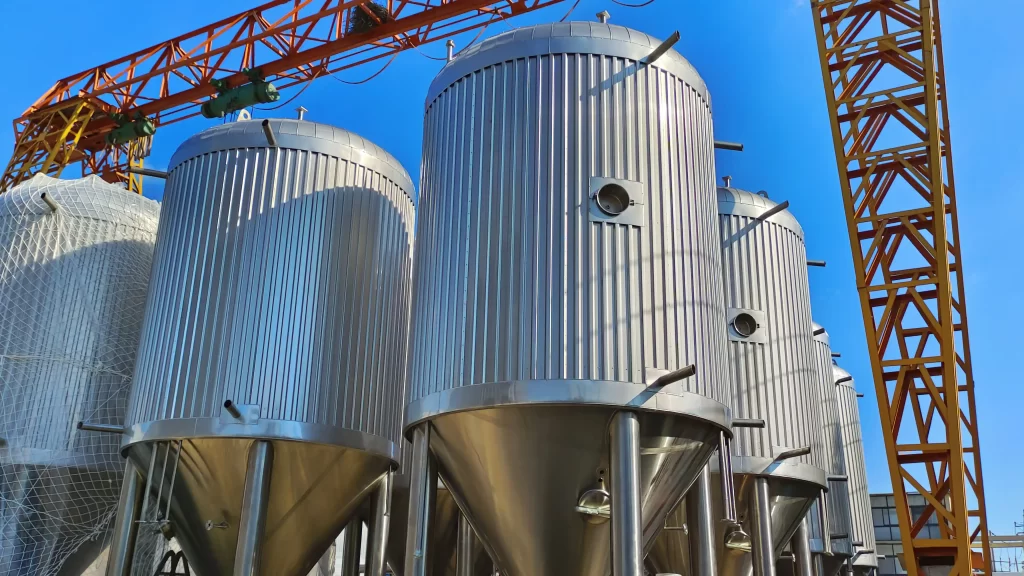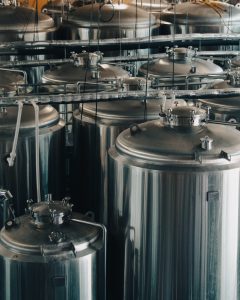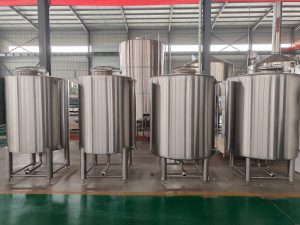Improving Beer Quality with Fermentation System Technology

In the brewing industry, the fermentation process plays a crucial role in determining the quality and flavor of beer. With advancements in fermentation tank technology, brewers now have access to fermentation system that not only optimize efficiency but also improve the consistency and overall quality of their brews.
What is a Fermentation System?
A fermentation system refers to the equipment and technology used to facilitate the fermentation of wort into beer. This includes fermentation tanks, temperature control systems, and monitoring tools designed to maintain ideal fermentation conditions. These systems are essential for managing the yeast’s activity and ensuring that the beer develops the right flavor profile, aroma, and alcohol content.
Key Features of Advanced Fermentation Tank Technology
- Temperature Control and Monitoring
One of the most significant factors affecting beer quality is temperature. Advanced fermentation systems include precise temperature control mechanisms that help brewers maintain optimal yeast fermentation temperatures. By keeping the beer within a specific range, brewers can enhance flavor consistency and reduce the risk of off-flavors. - Oxygen Management
Oxygen levels can have a significant impact on the final taste of beer. Modern fermentation tanks are equipped with advanced oxygen management systems that allow brewers to control the oxygen content in the fermentation vessel. This ensures that yeast fermentation occurs in an anaerobic environment, preventing unwanted oxidation and preserving the beer’s freshness. - Automated Control Systems
Automated control systems are a game changer for modern fermentation systems. These systems can monitor a variety of factors such as temperature, pressure, and pH levels, making it easier for brewers to maintain consistent quality. Automation reduces the risk of human error and allows for precision fermentation, leading to more reliable outcomes batch after batch. - Efficient Yeast Propagation
With advanced fermentation tank technology, yeast propagation has become more efficient. Some systems include specialized yeast propagation tanks that ensure optimal yeast growth, which in turn leads to more consistent fermentation. This also allows for better control over the fermentation process, resulting in improved beer quality.
Benefits of Advanced Fermentation Tank Technology
- Consistency in Beer Quality
With precise control over fermentation conditions, brewers can consistently produce high-quality beer. This ensures that every batch, whether large or small, maintains the same exceptional flavor and aroma. - Faster Fermentation
Advanced fermentation systems can speed up the fermentation process without compromising the beer’s flavor. With improved temperature control and oxygen management, fermentation tanks allow for more efficient yeast activity, resulting in quicker turnaround times. - Increased Production Efficiency
By automating the fermentation process and optimizing yeast health, modern fermentation systems help reduce labor and time required for brewing. This leads to better resource management and increased overall production efficiency. - Better Flavor Profiles
The precise control offered by advanced fermentation systems allows brewers to fine-tune their brewing process, resulting in beer with cleaner, more defined flavors. This technology also reduces the risk of flavor flaws caused by fermentation issues such as temperature fluctuations or oxygen contamination.
Conclusion
Investing in advanced fermentation systems is crucial for brewers looking to improve beer quality and production efficiency. With innovations in temperature control, oxygen management, and automation, modern fermentation tank technology offers significant benefits, including better flavor profiles, faster fermentation, and more consistent results. For breweries looking to elevate their beer quality and streamline their production processes, upgrading to advanced fermentation technology is a step towards achieving exceptional, consistent brews.
FAQs: Fermentation Systems
Q: What is the role of a fermentation system in brewing?
A: A fermentation system controls the environment in which yeast converts wort into beer, ensuring optimal temperature, oxygen levels, and pH for consistent and high-quality beer.
Q: How does temperature affect fermentation?
A: Temperature directly influences yeast activity. By controlling fermentation temperature, brewers can ensure consistent flavor profiles and reduce the risk of off-flavors.
Q: Can automated fermentation systems reduce human error?
A: Yes, automated systems monitor key fermentation parameters, allowing for precise control and reducing the chances of human error, which leads to more consistent beer quality.
Q: How does oxygen management impact fermentation?
A: Oxygen control ensures that fermentation occurs in an anaerobic environment, preventing oxidation that can spoil the beer and negatively affect its flavor and aroma.
Q: What are the benefits of faster fermentation with advanced systems?
A: Faster fermentation improves production efficiency, allowing brewers to produce more beer in less time without compromising on flavor quality or consistency.
https://www.tcbrewbeer.com/en/10000l-fermentation-tank/
https://www.tcbrewbeer.com/en/80bbl-fermentation-tank/
https://www.tcbrewbeer.com/en/1000l-fermentation-tank/
https://www.tonsenbrewing.com/products-brewery-beer-equipment.html
Related recommendations
-
Turnkey Brewing Systems: The Ultimate Guide for Aspiring Brewers
9Discover how Turnkey Brewing System simplify the brewing process and ensure professional results.
View details -
What is a Bright Tank and How It Improves Beer Quality?
102Learn how a bright tank improves beer clarity, carbonation, and stability, ensuring high-quality beer ready for packaging.
View details -
Brewing New Beginnings with Professional Brewing Equipment
152Elevate your brewing with professional brewing equipment. Discover innovative, sustainable solutions to craft exceptional beer in 2025.
View details -
Top Brewing Equipment Every Brewer Needs to Know About.
92Discover essential brewing equipment for high-quality beer, including mash tuns, fermentation tanks, and carbonation systems.
View details
 Shandong Tonsenbrew Co., Ltd.
Shandong Tonsenbrew Co., Ltd.





HelloPlease log in